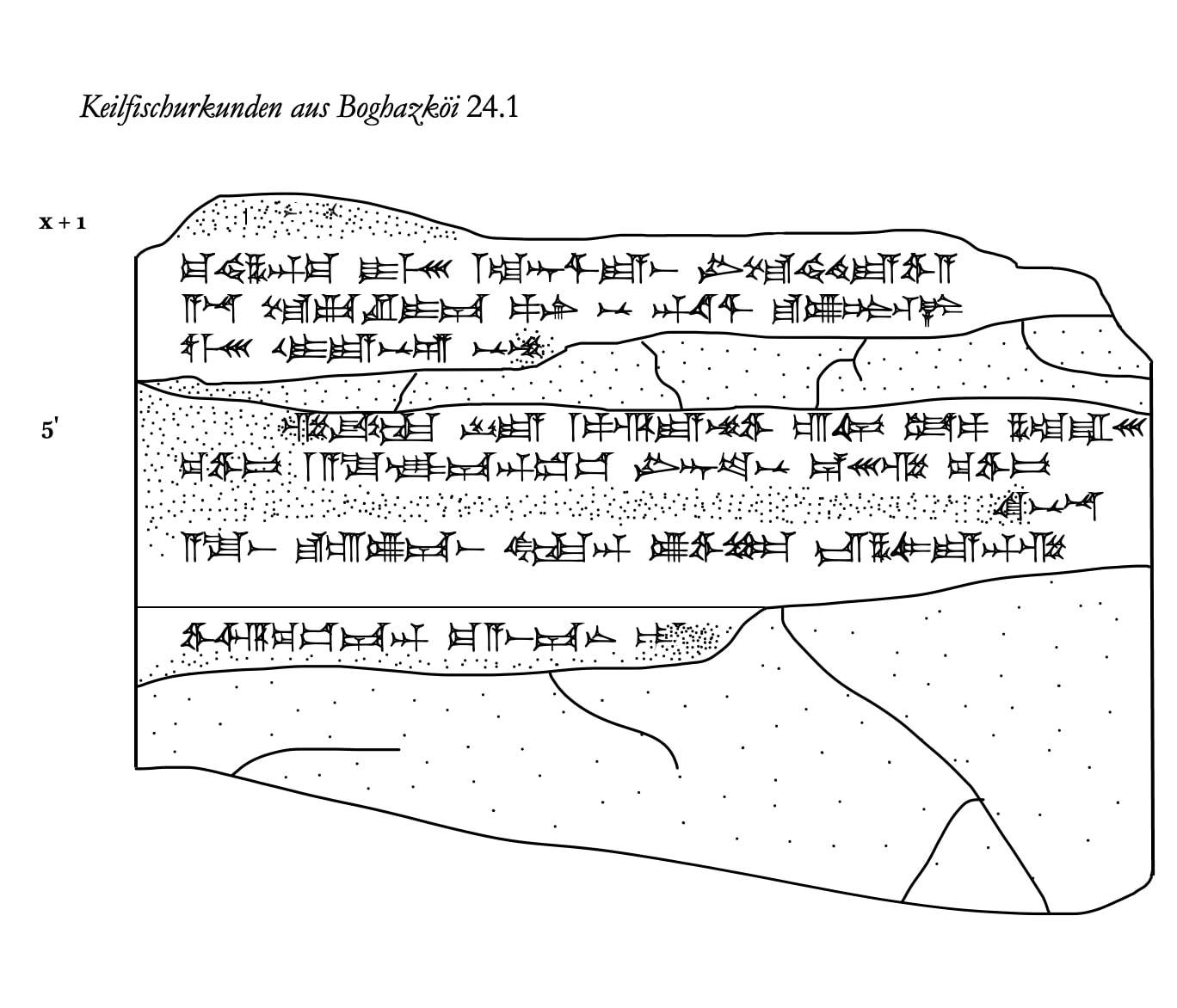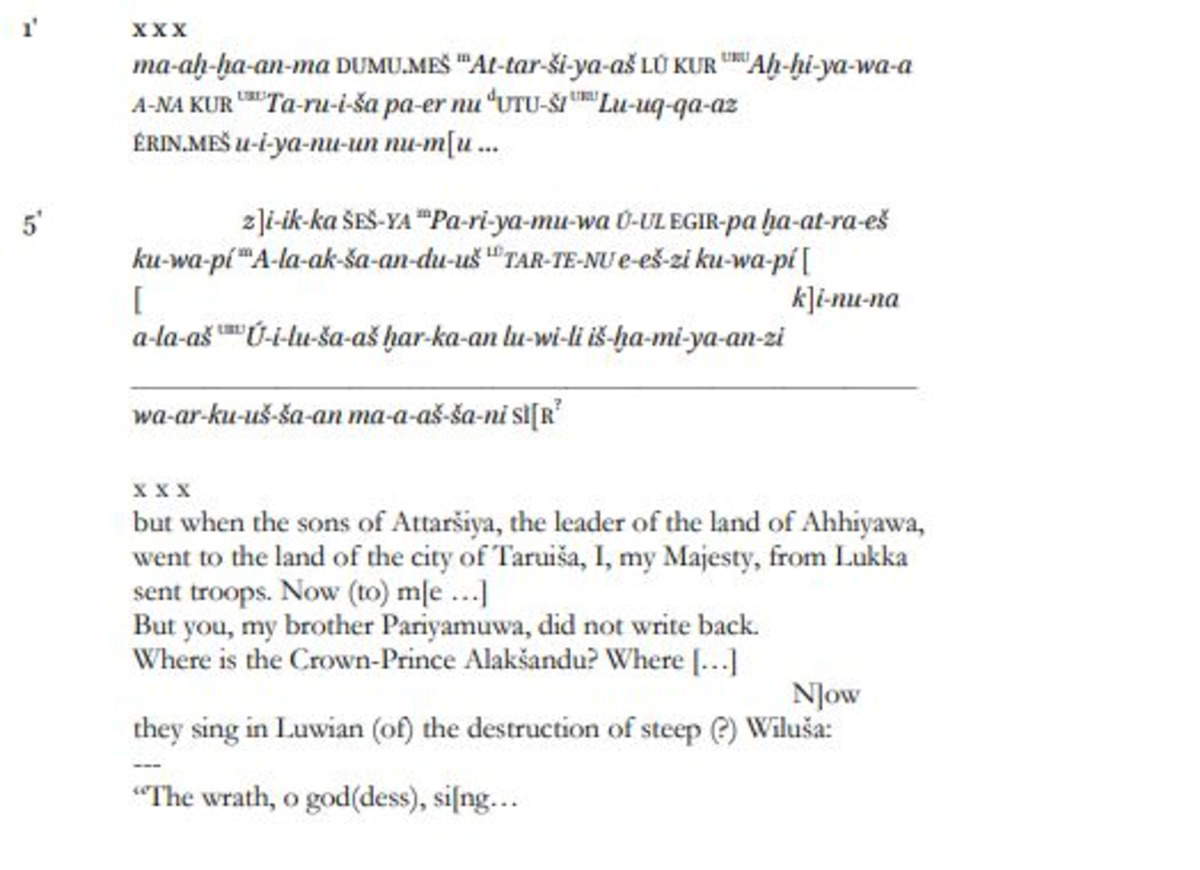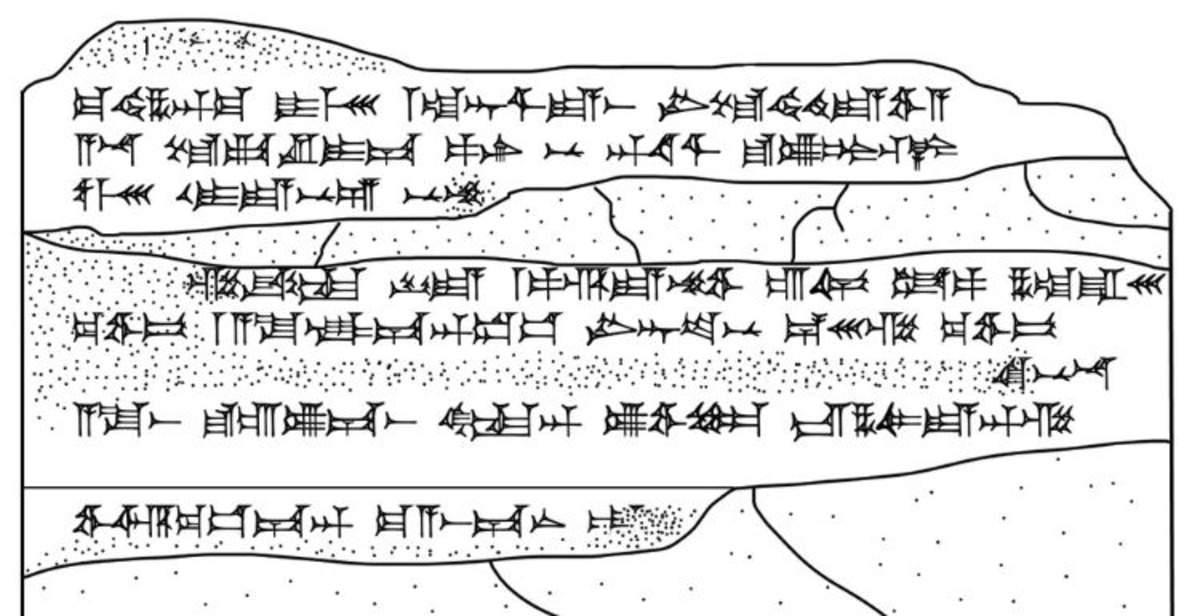A newly discovered Hittite tablet reveals surprising details about the Trojan War
In 2024, an archaeological discovery piqued the interest of the scientific community: the Hittite tablet known as Keilfischurkunden aus Boghazköi offers new information about the conflict that inspired the legend of the Trojan War. The tablet, belonging to an earlier period than the best-known sources, shows a correspondence between an unidentified Hittite ruler and a personage named Pariyamuwa, probably king of the city of Taruiša, traditionally identified with Troy. The discovery was presented by Michele Bianconi, of Oxford University, who analyzed the text of the tablet, highlighting its most relevant aspects. In particular, Bianconi pointed out that the text refers to an attack by the sons of Attaršiya, the ruler of Ahhiyawa, against the city of Taruiša/Troia (e.g. CTH 147, “Charge of Madduwatta”). This detail could also confirm the existence of a connection between the Hittite and Greek civilizations during the period of the Trojan War, a relationship that had so far only been assumed on the basis of legendary and mythological texts.
In the text, explicit reference is made to the participation of Lycian troops (Luqqa/Lukka), who, as the Iliad attests, fought alongside the Trojans during the final assault. The presence of soldiers is not new to scholars of Greek mythology, but it is the first time it appears in a direct, historical source of such significance. The connection between the Lycians and the Trojans thus seems to confirm the influence of Eastern cultures on warfare and its dynamics.


The songs about the fall of Wiluša/Ilion
The most surprising passage, however, comes at the end of the tablet, where direct reference is made to folk songs recounting the fall of Wiluša/Ilion, the name that the Hittite and Luwian peoples ascribed to Troy. The songs, as described in the fragment, hymn the destruction of the city and the end of an era, a theme that recurs in many ancient legends and has had a great influence on Mediterranean literature and culture. In particular, the tablet mentions that these songs are in Luwian, a language closely related to Hittite, but which seems to have a musicality and metrical structure similar to that of Greek epic poetry.
The discovery of the chants presents a novel perspective on the historical memory of Troy and argues that the myth of the lost city and its ruin was well established in Greek tradition and that of the Anatolian and Levant peoples, for whom Troy was a symbol of great importance.
The historical and linguistic context of the discovery
The city of Boghazköy in Turkey, where the tablet was found, was one of the capitals of the Hittite Empire and continues to reveal historical fragments that shed light on the complex relations between the various powers of Asia Minor and the eastern Mediterranean. The language used, Hittite, belonging to the Anatolian branch of the Indo-European languages, offers unique insight into the political and cultural interactions of a crucial period in ancient history. The correspondence between the Hittite ruler and Pariyamuwa, king of Taruiša, highlights the importance of Troy as a geopolitical entity in antiquity by arguing that the city was a central node in alliances and conflicts among the peoples of Asia Minor.
If the songs about the fall of Wiluša/Ilion and the participation of Lycian troops are confirmed by other evidence, the traditional readings of the Trojan War as an exclusively mythological episode may need to be revised. The musical aspect of the fragment could thus be an important key to understanding how the stories were passed down and how the oral traditions of different peoples intermingled.
 |
| A newly discovered Hittite tablet reveals surprising details about the Trojan War |
Warning: the translation into English of the original Italian article was created using automatic tools. We undertake to review all articles, but we do not guarantee the total absence of inaccuracies in the translation due to the program. You can find the original by clicking on the ITA button. If you find any mistake,please contact us.





























